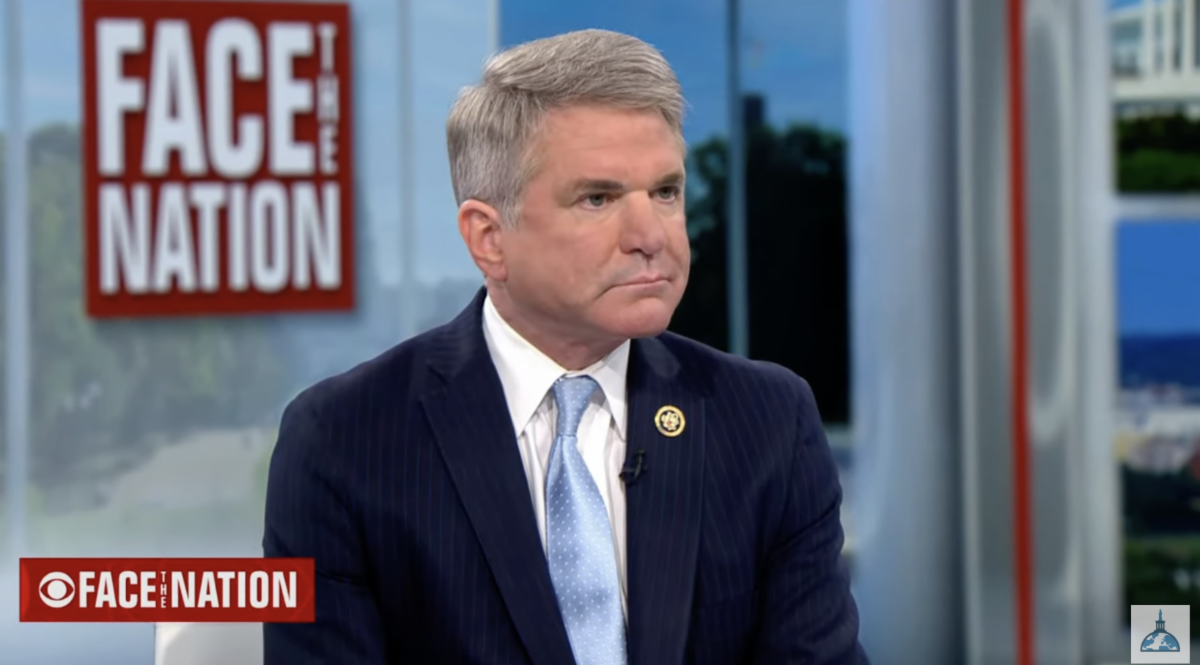Another Great Year of Fighting and Winning for Texans
 U.S. Sen. Ted Cruz (R-Texas) led the fight in the Senate this year against the Biden administration’s woke agenda and delivered pro-growth, pro-jobs, and pro-freedom policies to promote jobs, freedom, and security for Texans.
U.S. Sen. Ted Cruz (R-Texas) led the fight in the Senate this year against the Biden administration’s woke agenda and delivered pro-growth, pro-jobs, and pro-freedom policies to promote jobs, freedom, and security for Texans.
Reflecting on the past year, Sen. Cruz said, “As your senator for Texas, I have been proud to lead the fight to defend our values and promote jobs, freedom, and security. This year, I’ve had the privilege of leading my Republican colleagues as ranking member on the Senate Committee on Commerce, Science, and Transportation. We formed bipartisan coalitions around Biden nominees to stop inexperienced and radical ones while supporting qualified public servants, and we worked in a bipartisan manner to advance policies that will benefit the families and businesses in the Lone Star State. As we look ahead to 2024, I excited to keep fighting for the Lone Star State, and defending your freedoms, strengthening our economy, and creating more jobs for hardworking Texans and their families.”
Sen. Cruz’s 2023 Highlights:
Delivering for Texas
- SIGNED INTO LAW: After months of legislative efforts from a bipartisan coalition of Texas lawmakers led by Sen. Cruz, the annual defense authorization bill included language to streamline the presidential permitting process for building key bridges across the Rio Grande in Brownsville, Laredo, and Eagle Pass, Texas.
- Sen. Cruz also wrote a letter to the Biden administration in support of the Puerto Verde Global Trade Bridge (PVGTB)presidential permit application.
- SECURED BIPARTISAN, BICAMERAL SUPPORT: Sen. Cruz led the fight for U.S. diplomats and officials of the U.S. Section of the International Boundary Commission to have the necessary resources to ensure Mexico’s compliance with the 1944 Treaty on Utilization of Waters of the Colorado, Tijuana, and Rio Grande Rivers. A bipartisan majority of senators supported his efforts.
- PASSED THE U.S. SENATE: Sen. Cruz led efforts to formally name the Ports-to-Plains Corridor through Texas and New Mexico as Interstate 27, which will boost economic growth in Texas.
- Sen. Cruz participated in agriculture roundtables with industry leaders from the coast to the panhandle as he works to ensure our farmers and ranchers have the resources they need for Texas agriculture to thrive.
- Sen. Cruz sent a letter calling out FEMA for rejecting the City of Corpus Christi’s appeal for additional funding for the Packery Channel Restoration Project to rebuild after damage caused by Hurricane Harvey in 2017.
- Sen. Cruz sent a letter to President Biden supporting Texas Governor Greg Abbott’s request for an emergency disaster declaration to provide federal assistance to Texans impacted by severe weather, including tornadoes and heavy rain, in Harris, Jefferson, Liberty, and Orange counties.
- Sen. Cruz sent a letter to the Biden administration supporting Texas Governor Greg Abbott’s request for an emergency disasterdeclaration to provide federal assistance to Texans impacted by Winter Storm Mara.
- Sen. Cruz introduced the Highway Formula Modernization Act, bipartisan legislation that would direct the Department of Transportation to reevaluate the funding formulas used to distribute federal highway dollars to ensure we invest properly in Texas highways and highways across the nation.
- Sen. Cruz introduced the Improving Access to Our Courts Act to provide an additional court – located in Alpine, Texas – to those served by the Pecos Division of the Western District of Texas.
- Following reports of mail theft in the Galveston area, Sen. Cruz introduced the Upholding a Secure Postal System (USPS) Act that would require the Comptroller General of the United States to submit a report to Congress on nationwide mail theft trends, and what the Postal Service is doing to combat theft.
Boosting Jobs and the Economy
- Sen. Cruz was awarded the 2022 Club for Growth Defender of Economic Freedom Award for dedication to promoting economic growthand championing issues related to limited government.
- Sen. Cruz introduced the Cost Recovery and Expensing Acceleration to Transform the Economy and Jumpstart Opportunities for Businesses and Startups (CREATE JOBS) Act to generate much-needed investment in America’s workforce, create jobs, and provide relief for struggling Americans.
- Sen. Cruz introduced the Capital Gains Inflation Relief Act, and legislation to make permanent the 2017 Tax Cuts and Jobs Act’s middle-class tax cuts.
- Sen. Cruz introduced the Chemical Tax Repeal Act to eliminate the Superfund Tax imposed by the Infrastructure Investment and Jobs Act.
- Sen. Cruz introduced an amendment to repeal a provision from the 2021 infrastructure package that created new reporting requirements for many cryptocurrency and blockchain companies. The amendment would remove harmful regulations on the cryptocurrency industry that stifle innovation, endanger the privacy of Americans, and would push key aspects of the industry overseas.
- Sen. Cruz introduced the Adopting Cryptocurrency in Congress as an Exchange of Payment for Transactions Resolution, also known as the ACCEPT Resolution.
- Sen. Cruz introduced legislation to prohibit the Federal Reserve from developing a direct-to-consumer central bank digital currency, which could be used as a financial surveillance tool by the federal government.
- Sen. Cruz introduced the Federal Permitting Modernization Act (FAST Act) and the 90-day Review Act aimed at streamlining and expediting federal permitting for major infrastructure projects by putting more stringent timetables on federal agencies and courts to review projects.
- Sen. Cruz introduced legislation that will prevent companies that manage investment funds held in federal employee retirement accounts from using those holdings to vote in corporate shareholder meetings to force leftist Environmental, Social, and Governance (ESG) and Diversity, Equity, and Inclusion (DEI) policies onto private sector businesses.
- Sen. Cruz introduced legislation to eliminate the Office of Financial Research, a stark example of redundancy and unaccountability within the Treasury Department.
- Sen. Cruz introduced legislation to eliminate the Bureau of Consumer Financial Protection.
Protecting Our Independent Judiciary and Combating the Weaponization of Government
- Sen. Cruz introduced a proposed constitutional amendment that would ensure only nine justices could serve on the U.S. Supreme Court at a time.
- Sen. Cruz led a Supreme Court amicus brief in the case Loper Bright Enterprises v. Raimondo arguing that the doctrine of “Chevron deference” violates Articles I, II, and III of the Constitution.
- Sen. Cruz filed a Supreme Court amicus brief in the case Washington Alliance of Technology Workers v. Department of Homeland Security in support of a Petition for a Writ of Certiorari, seeking Supreme Court review of the unlawful issuance of student visas by the U.S. Department of Homeland Security.
- Sen. Cruz sent a letter to Attorney General Merrick Garland confronting the Department of Justice for surveilling the personal communications of attorneys advising congressional oversight committees.
- Sen. Cruz filed an amicus brief in the case Estados Unidos Mexicanos v. Smith & Wesson Brands, Inc. with the United States Court of Appeals for the First Circuit to support the Second Amendment and American sovereignty.
- Sen. Cruz sent a letter to Attorney General Merrick Garland at the Department of Justice requesting an investigation into why radical environmental organizations have been able to accept foreign money without registering under the Foreign Agents Registration Act (FARA).
- Sen. Cruz introduced Eric’s Law, a bill that aims to deliver justice to victims and their families in federal death penalty cases.
- Sen. Cruz introduced a joint resolution pursuant to the Congressional Review Act (CRA) to fight a D.C. Council measure that would allow illegal aliens to vote in local D.C. elections.
- Sen. Cruz introduced a series of bills to stop the lingering authoritarian COVID-19 mandates and protect Americans fromunconstitutional federal mandates around the COVID-19 pandemic.
- Sen. Cruz led a coalition of Senate Republican committee ranking members in sounding the alarm over an attempt by the White House to hijack the rulemaking process to promote left-wing policy goals.
Pushing Back on the Left’s Woke Agenda
- Sen. Cruz introduced bicameral legislation, the Safeguarding Free Speech Act, to prohibit federal agencies from forcing an employee or contractor to use personal pronouns that differ from an individual’s biological sex.
- Sen. Cruz introduced the Respect for Hispanic Americans Act, which would ban the use of the wholly-invented term “Latinx” in any official government communication by a federal agency or employee.
Freeing American Energy and Dismantling Burdensome Environmental Regulations
- The International Association of Drilling Contractors (IADC) honored Sen. Cruz with the Legislator of the Year Award for championing policies and advocating and leading legislative efforts to promote U.S. energy.
- Sen. Cruz introduced the Choice in Automobile Retail Sales (CARS) Act to counter the Biden administration’s executive overreachbanning gasoline powered vehicles and establishing an electric vehicle mandate.
- Sen. Cruz introduced the Public Water Supply Invasive Species Compliance Act and the Saving America’s Vulnerable and Endangered Species Act (SAVES Act), which would remove regulatory burdens for ranchers and conservators engaged in captive breeding of exotic wildlife while promoting animal conservation in the United States.
- Sen. Cruz introduced a resolution pushing back on the implementation of a carbon tax. The resolution addresses the negative impacts of instituting a carbon tax.
- Sen. Cruz sent a letter to the Executive Director of the Federal Permitting Improvement Steering Council (FPISC) against addingunnecessary bureaucratic barriers to the permitting process for domestic mining.
- Sen. Cruz introduced the Congressional Oversight of the Antiquities Act to reform the Antiquities Act of 1906 and require congressional approval for national monument designations.
- Sen. Cruz sent a letter calling on the U.S. Department of the Interior (DOI) to extend the public comment period for the Outer Continental Shelf (OCS) financial assurance proposed rule.
- Sen. Cruz introduced legislation to amend the National Trails System Act and designate Route 66 as a National Historic Trail without harming Texas and American energy development projects in the areas around Route 66.
- Sen. Cruz sent a bipartisan letter to the Department of Energy (DOE) Secretary Jennifer Granholm raising concern about a proposed rule by the DOE to change efficiency standards on distribution transformers—critical electric grid components.
- Sen. Cruz sent a letter to Secretary of the Department of the Treasury Janet Yellen condemning efforts by the Biden administration to use the U.S. tax code to penalize American energy production.
- Sen. Cruz introduced the Natural Gas Export Expansion Act, which would expedite the federal approval process for exporting liquefied natural gas (LNG) and increase free trade.
- Sen. Cruz introduced the Energy Freedom Act, in order to make America energy secure again by accelerating federal permitting for energy projects and pipelines, mandating new onshore and offshore oil and gas lease sales, approving pending liquified natural gas (LNG) export licenses, and generally speeding up solar, wind, and geothermal development.
- Sen. Cruz introduced the Black Vulture Relief Act, which would alleviate burdensome government regulations and allow farmers to protect their newborn livestock from black vultures without a depredation permit whenever their livestock is threatened.
Backing Law Enforcement
- PASSED THE SENATE: Sen. Cruz sponsored a resolution commemorating the bicentennial of the Texas Ranger Division of the Texas Department of Public Safety.
- Sen. Cruz introduced the Back the Blue Act, which would increase penalties for criminals who target law enforcement officers and provide new tools for officers to protect themselves.
- Sen. Cruz introduced legislation that would protect the brave men and women of law enforcement by criminalizing fleeing from agents or officers in a high-speed chase. The bill is named in honor of Border Patrol Agent Raul Gonzalez, Jr., who died in the line of duty while pursuing a group of illegal aliens near Mission, Texas.
Combating the Drug Crisis and Increasing Healthcare Access
- SIGNED INTO LAW: Sen. Cruz’s Testing, Rapid Analysis, and Narcotic Quality (TRANQ) Research Act is now law. It will direct the National Institute of Standards and Technology (NIST) to take steps to enhance understanding of the dangerous animal tranquilizer xylazine, or tranq and other novel synthetic drugs, develop new tests for detection, and establish partnerships with front-line entities that are often the first points of contact with new street drugs.
- Sen. Cruz introduced bipartisan legislation to address the online sale of counterfeit pills laced with fentanyl.
- Sen. Cruz introduced the Reciprocity Ensures Streamlined Use of Lifesaving Treatments Act, to expand healthcare innovation and accessibility for Texans and all Americans by increasing access for all Americans to life-saving drugs, devices, and other medical therapies already approved in other trusted countries.
Defending the Right to Life
- Sen. Cruz sent a letter to Attorney General Merrick Garland demanding answers about allegations that the Federal Bureau of Investigation (FBI) was secretly surveilling recent meetings of the pro-life group Progressive Anti-Abortion Uprising (PAAU).
- Sen. Cruz led the effort to demand answers from Lonnie G. Bunch III, Secretary of the Smithsonian Institute, about the reported harassment of a pro-life Catholic school group at the National Air and Space Museum.
- Sen. Cruz sent a bicameral letter to the National Archives and Records Administration acting archivist Debra Steidel Wall urging a prompt response regarding the treatment of several pro-life Americans at the National Archives Museum on January 20, 2023.
Championing Our Military and Veterans
- SIGNED INTO LAW: Sen. Cruz authored the bipartisan, bicameral bill that renamed a Texas post office after Spc. Vanessa Guillén, a 20-year-old soldier of the United States Army stationed at Fort Hood Army Base who was murdered by another soldier on base.
- SIGNED INTO LAW: Sen. Cruz’s Changing Age-Determined Eligibility to Student Incentive Payments (CADETS) Act expanded the age of eligibility for the Student Incentive Payment Program at the Maritime Administration, granting financial assistance to cadets who attend one of six state maritime academies, including Texas A&M Maritime Academy, and who commit to a post-graduation service obligation.
- SIGNED INTO LAW: Sen. Cruz spearheaded a bipartisan amendment to the FY24 National Defense Authorization Act (NDAA)prohibiting the sale of Strategic Petroleum Reserve (SPR) crude oil to China, Russia, Iran, and North Korea.
- Sen. Cruz introduced an amendment to the FY24 NDAA that build on the NDAA of 2023, to support servicemembers who were wrongly discharged solely based on their COVID-19 vaccine status.
- Sen. Cruz introduced the Pay Our Coast Guard Act, bicameral, bipartisan legislation to ensure Coast Guardsmen are paid just like other military personnel in the event of a government shutdown.
- Sen. Cruz sent a bipartisan letter to the United States National Archives and Records Administration (NARA) requesting answers on the backlog of veterans’ service record requests impacting their access to critical government benefits and services.
- Sen. Cruz introduced legislation that creates an opt-in for military families to establish Military Education Savings Accounts (ESAs) to help fund their child’s education and expand access to personalized, high-quality educational experiences.
- SIGNED INTO LAW: Sen. Cruz introduced the Deterring Egregious State Infiltration of Schools’ Training (DESIST) Act, which would prohibit the Department of Defense from establishing or maintaining a Junior Reserve Officers’ Training Corps (JROTC) program at any private school operated or controlled by entities linked to the People’s Republic of China (PRC), Chinese Communist Party (CCP), or the People’s Liberation Army (PLA). This amendment was included in the FY24 NDAA.
Advocating for Our Students
- Sen. Cruz introduced and fought for the immediate passage of his Securing Our Schools Act and the Protect Our Children’s Schools Act, which would improve school security and access to student mental health resources and allow schools to use unspent, previously appropriated federal COVID-19 education-related funding to improve school security.
- Sen. Cruz sent a letter to Secretary of Education Miguel Cardona, urging the Biden administration to address the growing rates of antisemitism in K-12 schools following Hamas’s war against Israel.
Standing Up to America’s Enemies and Adversaries, While Standing with Her Allies
- PASSED THE U.S. SENATE: Sen. Cruz spearheaded the passage of his bipartisan legislation to rename the street outside of the Cuban embassy in Washington, D.C. as “Oswaldo Payá Way” after the Cuban dissident leader who was assassinated by Cuba’s communist regime.
- Sen. Cruz introduced the Protecting America from Spies Act, legislation that would make individuals who have committed acts of espionage or intellectual property theft against the United States ineligible for visas, as well as the family members of such individuals, for a period of five years.
Standing with Israel
- Sen. Cruz sent a letter to U.S. Secretary of State Antony Blinken calling on him to rescind discriminatory guidance issued by the State Department halting bilateral scientific and technological cooperation in certain Israeli-held territories.
- Sen. Cruz sent a letter to Harvard University President Claudine Gay demanding that the university condemn the antisemitic statementsmade by student organizations on campus.
- Sen. Cruz introduced the Hamas Sanctions Act, the first piece of legislation to comprehensively target Hamas. The legislation wouldimpose sanctions on Hamas, its members and affiliates, and countries that provide funding and territory for Hamas operations.
Countering the Iranian regime
- Sen. Cruz introduced the Strengthening Entry Visa Enforcement and Restrictions Act, or SEVER Act, to block the Biden administrationfrom allowing Iranian President Ebrahim Raisi and other sanctioned individuals linked to the Iranian regime to enter the United States.
- Sen. Cruz introduced legislation to prohibit the Biden administration from waiving Congressional sanctions that prohibit cooperation on Iran’s nuclear program.
Countering Communist China
- PASSED THE U.S. SENATE: Sen. Cruz gained unanimous support for his resolution calling for the release of wrongfully detained Texan Mark Swidan, who is imprisoned in China.
- Sen. Cruz introduced the Protecting Military Installations and Ranges Act, to stop adversaries from acquiring land near military bases, and military areas, which puts our military and national security at risk.
- Sen. Cruz introduced the Stop Higher Education Espionage and Theft (SHEET) Act to counter Chinese espionage efforts in American universities.
Supporting freedom and opposing oppression in Central and South America
- Sen. Cruz introduced a resolution supporting the Alliance for Development in Democracy (ADD), a multilateral initiative by American allies in Latin America including Panama, Dominican Republic, Costa Rica, and Ecuador.
- Sen. Cruz sent a letter to President Biden calling on his administration to reverse political concessions and increase pressure on the Maduro regime in Venezuela, after the administration eased economic pressure as part of a deal related to the Venezuelan elections in 2024.
- Sen. Cruz introduced the Corruption in Argentina Stymied by Enforcing Sanctions Act of 2023, or CASES Act, which would require the President to investigate five Argentinian officials for corruption, including Argentina’s Vice President Cristina Fernández de Kirchner.
Fighting to Secure the Southern Border
- Sen. Cruz introduced the Stop Dangerous Sanctuary Cities Act, which would allow local law enforcement to cooperate with federal immigration authorities and would pull taxpayer-funded grants going to sanctuary cities.
- Sen. Cruz introduced the FINISH IT Act, which would require the federal government to use previously purchased and unused border wall panels to extend the wall along the U.S.-Mexico border or to transfer them to state governments to be used for wall construction.
- Sen. Cruz sent a letter to President Biden urging the White House to reverse the administration’s decision to end Title 42.
- Sen. Cruz led Republican Senate colleagues on a trip to the U.S.-Mexico border to Brownsville, Texas on the eve of the end of Title 42 to meet with U.S. Customs and Border Patrol, the Texas National Guard, and other law enforcement officials.
- Sen. Cruz introduced bicameral legislation to amend federal law and impose a mandatory minimum sentence of five years for any person who has multiple convictions, or a conviction for an aggravated felony, who enters the country illegally.
- Sen. Cruz traveled to Texas’ maritime border at South Padre Island to visit key Coast Guard stations and hear directly from the men and women of the Coast Guard about what resources they need to keep Texas’ maritime borders safe and secure.
- Sen. Cruz introduced the Schools Not Shelters Act, which passed the House with bipartisan support, to protect and prioritize students by prohibiting K-12 schools, colleges, and universities that receive federal funding from being used as shelters to house illegal aliens.
- Sen. Cruz introduced an amendment to add the Secure the Border Act to the continuing resolution to stop the Biden Border Crisis dead in its tracks and halt the invasion at our southern border.
- Sen. Cruz led Republican Senate colleagues on a trip to the U.S.-Mexico border to witness the impacts of the millions of illegal immigrants who have flooded through the southern border, the rising rates of drug smuggling, and the increasing national security threats due to President Biden’s open border policies.
- Sen. Cruz sent a letter to the Secretary of the U.S. Department of Homeland Security Alejandro Mayorkas calling on the Biden administration to address a text message, discovered by El Paso Sector Intelligence, soliciting personal information of Border Patrol agents and their families.
- Sen. Cruz sent a letter to Secretary of the Department of Homeland Security Alejandro Mayorkas demanding that the Biden administration immediately address the influx of “special interest aliens” who have been arrested at the southern border.
Leading Republican Legislative Initiatives as the Ranking Member on the Senate Commerce Committee
- PASSED THE U.S. SENATE: Sen. Cruz advanced legislation that would streamline the CHIPS permitting reform process, removing burdensome hurdles to achieving environmental reviews and permits. The amendment, which passed the Senate with overwhelming bipartisan support in July, would provide regulatory certainty and accelerate the construction of semiconductor manufacturing plants.
- Sen. Cruz introduced the bipartisan, bicameral AM Radio for Every Vehicle Act to require automakers to maintain AM broadcast radio in vehicles. In Texas, over 88,000 jobs are tied to radio.
- Sen. Cruz introduced bipartisan legislation that passed the Commerce Committee to require all event ticket sellers to display the total ticket price—including all required fees—in any advertisement or marketing materials.
- Sen. Cruz led bipartisan efforts to stop three Biden administration nominees over lack of experience or radical policy positions.
- Sen. Cruz introduced legislation to limit children’s access to social media at school by requiring schools receiving federal broadband funding to prohibit access on subsidized services, devices, and networks.
- Sen. Cruz unveiled a discussion draft of legislation aimed at addressing major issues in college athletics that have wrought a patchwork of pending litigation, inconsistent state laws, and labor complaints.
- Sen. Cruz and Sen. Joe Manchin (D-W.Va), Chairman of the Senate Energy and Natural Resources Committee, introduced the Gas Stove Protection and Freedom Act, legislation that would block the U.S. Consumer Product Safety Commission (CPSC) from banning gas stoves.
- Sen. Cruz and Senator Maria Cantwell (D-Wash.), Chair of the Senate Commerce, Science and Transportation Committee, introduced the Informing Consumers about Smart Devices Act, legislation that would require the FTC to create reasonable disclosure guidelines for products that have audio or visual recording components, such as refrigerators, washers, dryers and dishwashers that are not clearly obvious. This legislation passed the Commerce Committee.
- Sen. Cruz sent a letter to Corporation for Public Broadcasting (CPB) President and CEO Patricia de Stacy Harrison, expressing objections to a CPB mandate that radio and television stations must engage in affirmative action to qualify for grant funding.
- Sen. Cruz sent a letter to Eventbrite President and CEO Julia Hartz requesting details regarding the firm’s seemingly inconsistent enforcement of community guidelines targeting conservatives, which has resulted in the removal of events featuring comments from Riley Gaines, while permitting feature speakers espousing allegiance to Hamas.
- Sen. Cruz sent a letter to the U.S. Department of State, Federal Bureau of Investigation (FBI), Cybersecurity and Infrastructure Security Agency (CISA), and National Science Foundation (NSF) to turn over information regarding their role in helping facilitate the censorshipof Americans’ constitutionally protected speech online.
- Sen. Cruz led 27 of his colleagues in calling on the Federal Communications Commission (FCC) to rescind its draft order on “Digital Discrimination,” which would give the federal government control over nearly every aspect of the Internet while opening broadband providers to expansive, indeterminate, and crippling liability under a “disparate impact” standard.
- Sen. Cruz sent a letter to Coca-Cola CEO James Quincey demanding answers regarding the company’s decision to delete references to a donation the company made to the Black Lives Matter Global Network.
- Sen. Cruz asked the National Science Foundation (NSF) to turn over information regarding its taxpayer-funded censorship, including doling out tens of millions of dollars in grants to universities building online censorship tools and developing “trauma support” therapy for journalists.
- Sen. Cruz led more than 100 other lawmakers in calling on Congressional leaders to include Sens. Cruz and Kelly’s amendment to streamline the CHIPS permitting reform process in this year’s National Defense Authorization Act (NDAA).
- Sen. Cruz led a bicameral coalition of federal lawmakers calling on the Pipeline and Hazardous Materials Safety Administration (PHMSA) to reverse its suspension of rules allowing liquefied natural gas (LNG) by rail.
- Sen. Cruz led Commerce Committee Republican members in sending a letter to companies X, Meta, TikTok, and Google seeking information on their content moderation policies during the Israel-Hamas war, and asking the companies to commit to fully preserving a documentary history of Hamas’s atrocities.
- Sen. Cruz led a group of senators in urging the National Oceanic and Atmospheric Administration (NOAA) and the National Marine Fisheries Service (NMFS) to withdraw a proposed rule designating more than 28,270 square miles of the Gulf of Mexico, an area larger than West Virginia, as a “critical habitat” for the newly discovered Rice’s whale—a clear attempt to shut down oil and gas operations in the area over a single sighting of a whale in 2017.
- Sen. Cruz sent a letter pressing Transportation Secretary Pete Buttigieg about the decision-making behind certain grants to the Amtrak NY-NJ Gateway Program and asked the Department of Transportation (DOT) to commit to giving fair consideration to the whole country for grants, rather than favoring the Northeast Corridor.
- Sen. Cruz sent a letter to the administrator of the Transportation Security Administration (TSA) demanding answers on whether the deployment of federal air marshals to assist along the southwest border is risking the safety of the flying public.
- Sen. Cruz sent a letter to the newly sworn-in Federal Communications Commission (FCC) Commissioner, Anna Gomez, urging her to oppose FCC Chairwoman Rosenworcel’s plan to expand the E-rate program beyond school classrooms and libraries. The proposed expansion of funding, including to fund Wi-Fi hotspots on school buses, is not only unlawful (the statute only allows for connectivity spending for classrooms and libraries) but raises concerns about subsidizing children’s unsupervised internet access to social media sites like TikTok and Instagram on their bus rides to and from school.
- Sen. Cruz and House Committee on Oversight and Accountability Chairman James Comer (R-Ky.) today sent a letter to the law firm Sher Edling LLP demanding information related to the firm’s barrage of lawsuits targeting energy companies, and the role the acting administrator of the National Highway Traffic Safety Administration, Ann Carlson, played in these lawsuits while serving as a professor at UCLA Law School.
- Sen. Cruz took to the Senate floor requesting unanimous consent to pass the Pay Our Coast Guard Act, bicameral, bipartisan legislation he introduced with Senators Maria Cantwell (D-Wash.), Dan Sullivan (R-Alaska), and Tammy Baldwin (D-Wis.). The Pay Our Coast Guard Act would ensure Coast Guardsmen are paid just like other military personnel in the event of a government shutdown.
- Sen. Cruz led all Committee Republicans in sending a letter to President Biden, blasting the administration for violating the Vacancies Act by allowing Ann Carlson, who was effectively rejected by the Senate to be administrator of the National Highway Traffic Safety Administration (NHTSA), to serve as acting head of the agency.
- Sen. Cruz joined Sen. John Barrasso (R-Wyo.), Sen. Cindy Hyde-Smith (R-Miss.), and Sen. Bill Cassidy (R-La.) on an amicus brief in a case concerning the Biden administration’s decision to alter the terms of “Lease Sale 261,” an oil and gas lease sale in the Gulf of Mexico required by the Inflation Reduction Act of 2022.
- Sen. Cruz released a fact-finding report on the single largest pot of federal money ever allocated for broadband—the $42.45 billion allocation for the Broadband Equity Access and Deployment (BEAD) Program.
- Sen. Cruz sent a letter to Federal Trade Commission (FTC) Chairwoman Lina Khan seeking answers regarding her plans to regulate artificial intelligence for “disinformation” and “bias.” The letter explains that the FTC’s review of large language models used to train AI, which comes without any explicit statutory congressional authorization, may also infringe on constitutionally-protected speech.
- Sen. Cruz sent letters to Federal Trade Commission (FTC) Chairwoman Lina Khan and the head of the European Union’s San Francisco office, demanding answers regarding the degree of coordination between the FTC and the EU to enforce the EU’s Digital Services Act (“DSA”) and Digital Markets Act (“DMA”) on U.S. soil.
- Sen. Cruz and Senate Energy and Natural Resources Committee Chairman Joe Manchin (D-W.Va), announced that they had secured a bipartisan amendment to prevent the Biden administration from banning gas stoves in households across America in the Fiscal Year 2024 Financial Services and General Government (FSGG) funding bill. The amendment largely mirrors the bipartisan Gas Stoves Protection and Freedom Act that they had introduced together in February that would preclude CPSC from using federal funds to ban gas stoves or impose regulations that would substantially increase the costs of gas stoves to make them unaffordable for Americans.
- Sen. Cruz sent a letter to Vice Admiral Joanna Nunan, the superintendent of the U.S. Merchant Marine Academy (USMMA), demanding answers about the safety of cadets in light of disturbing remarks by the school’s sexual assault prevention and response (SAPR) director.
- Sen. Cruz and Sen. Edward J. Markey (D-Mass.) sent a bipartisan letter to seven automakers that either removed or planned to remove broadcast AM radio in their current and future vehicle models, including electric vehicles, urging the automakers to make a commitment to keep AM radio in their vehicles.
- Sen. Cruz sent a letter to Federal Trade Commission (FTC) Chairwoman Lina Khan regarding the troubling drop in employee morale at the agency.
- Sen. Cruz led a coalition of Senate Republican committee ranking members in sounding the alarm over an attempt by the White House to hijack the rulemaking process to advance left-wing policy goals that have been rejected by Congress.
- Sen. Cruz published a 13-page memo to the beer industry’s self-regulatory body detailing how Bud Light’s sponsorship of Dylan Mulvaney violated industry standards that prohibit marketing to underage individuals.
- Sen. Cruz sent a letter to President Biden, urging him to immediately nominate a “serious and well-qualified person with substantial aviation experience” to serve as Federal Aviation Administration administrator.
- Sen. Cruz sent a letter to Meta Chief Executive Officer Mark Zuckerberg demanding answers about reporting from the Wall Street Journal describing how Instagram’s recommendation systems actively facilitated the production, purchase, and possession of child sexual abuse material.
- Sen. Cruz and Sen. Marsha Blackburn (R-Tenn.) opened an investigation into and called on the beer industry’s self-regulatory body—the Beer Institute—to investigate whether Anheuser-Busch’s partnership with influencer Dylan Mulvaney violates the Beer Institute’s guidelines prohibiting marketing to underage individuals. The letter outlines evidence showing that Dylan Mulvaney’s audience skews younger than the legal drinking age and that Mulvaney’s social media content appeals to young viewers.
- Sen. Cruz sent a letter to the Federal Communications Commission Acting Inspector General asking that she open an investigation into whether FCC Chairwoman Jessica Rosenworcel’s unprecedented actions against the Standard General-TEGNA transaction, including the decision to have the FCC’s Media Bureau designate the transaction for an Administrative Law Judge (“ALJ”) hearing, were motivated by a biased desire to block the deal.
- Sen. Cruz and House Committee on Oversight and Accountability Chairman James Comer (R-Ky.) sent bicameral letters to Consumer Reports, the Climate Imperative Foundation, and Stacey Abrams’ Rewiring America group.
- Sen. Cruz led his Senate Commerce Republican colleagues in sending a letter highlighting serious concerns regarding President Biden’s nominee to lead the National Highway Transportation Administration (NHTSA), Ann Carlson, and her past record of promoting green energy mandates for the automobile industry.
- Sen. Cruz and House Judiciary Chairman Jim Jordan (R-Ohio) sent a bicameral letter to Mary Daly, President and CEO of the Federal Reserve Bank of San Francisco (“SF Fed”), regarding the SF Fed’s failure to properly ensure the safety and soundness of Silicon Valley Bank (“SVB”) and to comply with congressional oversight requests about SVB’s collapse.
- Sen. Cruz sent a letter to Secretary of Transportation Pete Buttigieg requesting information related to the Federal Aviation Administration’s (FAA) long-running inability to address congestion and air traffic controller shortages in the New York region.
- Sen. Cruz and Republican committee members sent a letter expressing concern that President Biden and Secretary of Transportation Pete Buttigieg are improperly favoring Northeastern states over the rest of the country with respect to Amtrak Board seats and a large taxpayer-funded rail grant program.
- Sen. Cruz sent letters to nine Big Tech firms seeking information about coordination with more than 40 government officials who were attempting to flag, censor, and investigate the content and accounts of Americans online.
- Sen. Cruz led a letter with more than a dozen Senate Republican colleagues to Secretary of Commerce Gina Raimondo urging the administration to strike a number of liberal social policy conditions that were attached to grants for domestic chip production. Few of the requirements on the $39 billion in money, such as requiring applicants to develop plans around mass transit use and affordable housing, were found in the CHIPS Act, a bill enacted last year meant to help re-shore semiconductor manufacturing.
- Sen. Cruz sent a series of letters to Biden regulators and left-wing environmental advocacy groups seeking information and preservation of documents regarding their role in the Biden administration’s recent efforts to ban gas stoves.
- Sen. Cruz and Rep. Jim Jordan opened a probe into the Federal Trade Commission’s investigation of Elon Musk’s Twitter takeover.
- Sen. Cruz called on the National Aeronautics and Space Administration (NASA) to rescind its costly, radical proposed rule to require government contractors to provide extensive information about greenhouse gas (GHG) emissions.
- Sen. Cruz sent a letter to the Department of Transportation’s Maritime Administration (MARAD) seeking information about its lengthy delays in reaching decisions on applications for deepwater ports for exporting oil and natural gas. The letter also urged MARAD to meet its statutory deadlines to make decisions. Currently, four of the seven applications for licenses are for projects located off the coast of Texas.
- Sen. Cruz sent a letter to social media companies Meta, Google, Twitter, and TikTok launching an oversight investigation into these companies’ use of recommendation algorithms and their reported use of “blacklists,” “de-emphasizing,” and other means of “reduced distribution” of content from users, including many conservatives.
- Sen. Cruz, Sen. Lindsey Graham (R-S.C.), Sen. Mike Lee (R-Utah), and Sen. Tom Cotton (R-Ark.) sent a letter to the CEOs of DirectTV and its controlling shareholders, AT&T and TPG, voicing deep concerns about DirecTV’s decision to drop conservative news network Newsmax.








